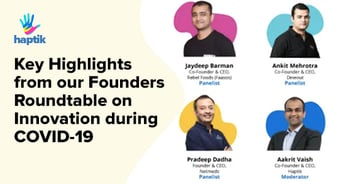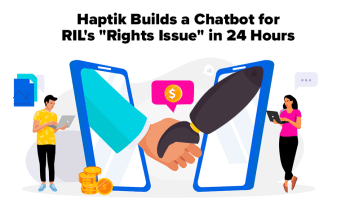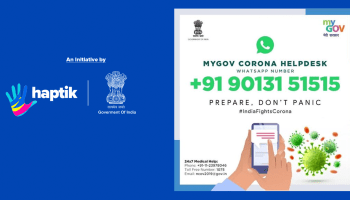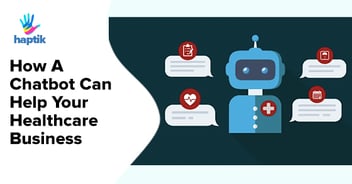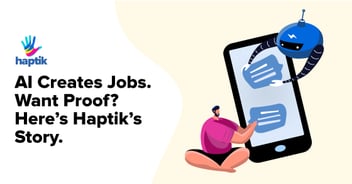If there is a silver lining somewhere with the COVID-19 pandemic, it’s that we were forced to introspect on the healthcare sector, both public and private, and whether it has the tools it needs – not only to deal with such crises, but to ensure the best possible healthcare outcomes even under normal circumstances.
There can be no substitute for the inspiring efforts of doctors, medics and other healthcare providers, but technology can play a key role in enabling them to focus their energies more effectively and amplifying the impact of their work.
Conversational AI is powering many key use cases that impact both care givers and patients. Based on Haptik’s experience of designing and implementing Intelligent Virtual Assistant (IVA) solutions for healthcare providers, we have identified five use cases in particular for which the technology can be implemented to help medical professionals treat their patients with greater efficiency and care.
Information Dissemination
The COVID-19 pandemic reinforced a lesson that we’ve always known but often forget – the only things that spread faster than infections during a healthcare crisis are misinformation and panic. But even during normal circumstances, inaccurate or false information about health or disease-related issues causes harm to individuals and communities. This either prevents them from making the right decisions or actively encourages them to make the wrong ones.
The need to educate people about the facts behind a particular health-related issue, and to undo the damage caused by misinformation, does place an additional burden on medical professionals. A powerful tool for disseminating accurate and essential information to those who need it would definitely be a great asset, and that’s where Conversational AI can help.
An AI Assistant can answer common queries and FAQs related to a particular disease, health condition or epidemic. It can raise awareness about a specific health-related concern or crisis by offering swift access to accurate, reliable and timely information. All this in an engaging, conversational manner, across a range of digital platforms including websites, social media, messaging apps etc.

At Haptik, we’ve already witnessed the success of this tech-driven conversational approach to raising public health awareness. We collaborated with the Government of India to develop the MyGov Corona Helpdesk – a WhatsApp chatbot to answer a wide range of queries about the COVID-19 pandemic, including symptoms and transmission, preventive measures, official government helplines, and more.
Within the first 48 hours of its implementation, the MyGov Corona Helpdesk processed over five million conversations from users across the country.
The choice of WhatsApp as a platform was a key factor in ensuring the wide reach of this solution, given that WhatsApp is the world’s largest messaging platform, with over 400 million users in India alone.
LEARN MORE: Haptik Develops WhatsApp Chatbot for Government of India to Raise COVID-19 Awareness
So it’s clear that an AI Assistant can be a force-multiplier to any awareness initiative, particularly when it is deployed on the right platform and easily accessible by its target audience (which, in the case of the COVID-19 pandemic, is everyone.)
In the long term, Conversational AI can serve as a virtual ‘healthcare consultant’ at any point in time – answering questions that millions of people across the globe have about major and minor health-related issues on a daily basis. In this regard, a conversation with an AI Assistant would efficiently substitute the initial phone call you might make to your doctor to discuss your concerns, before making an in-person appointment.
Appointment Scheduling
Fundamentally, scheduled appointments help reduce patient wait times and improve satisfaction.
Appointment scheduling and management systems are a common part of healthcare facilities nowadays. However, it is equally not uncommon to find many systems with a complex UI that can get frustrating for patients.
Conversational AI, on the other hand, allows patients to schedule their healthcare appointments seamlessly, and even reschedule or cancel them.
The perks of conversational AI in healthcare don’t end there either.
It assists patients by providing timely appointment reminders, informing them about documents they should (or needn’t) bring, and whether they might need someone’s assistance after the appointment.
Customer Care
When we talk about the healthcare sector, we aren’t referring solely to medical professionals such as doctors, nurses, medics etc. but also to administrative staff at hospitals, clinic and other healthcare facilities. They might be overtaxed at the best of times with the sheer volume of inquiries and questions they need to field on a daily basis. During a crisis like the COVID-19 pandemic, the situation was almost unmanageable.
Enterprises have successfully leveraged AI Assistants to automate the response to FAQs and the resolution of routine, repetitive tasks. A well-designed conversational assistant can reduce the need for human intervention in such tasks by as much as 80%. This enables firms to significantly scale up their customer support capacity, be available to offer 24/7 assistance, and allow their human support staff to focus on more critical tasks.
The healthcare sector can certainly benefit tremendously from such AI-driven customer care automation. In fact, Haptik has worked with several healthcare brands to implement such solutions – one of the most successful examples being our work with a leading diagnostics chain, Dr. LalPathLabs.
LEARN MORE: How a Chatbot Can Help Your Healthcare Business
Haptik’s AI Assistant, deployed on the Dr. LalPathLabs website, provided round-the-clock resolution to a range of patient queries. It facilitated a seamless booking experience by offering information about nearby test centers, and information on available tests and their pricing. It also provided instant responses to queries regarding the status of test reports. The latter was particularly important from a customer experience standpoint, given that there is understandably a lot of anxiety that surrounds an impending test report, which makes a swift response all the more appreciated.
The assistant we implemented for Dr. LalPathLabs interacted with over 400,000 customers within a few months of going live, and received an overwhelmingly positive response from users. Watch the video below to learn more about it:
Health Tracking & Management
Conversational AI allows patients to stay on top of their physical health by identifying symptoms early and consulting healthcare professionals online whenever necessary.
In addition, patients have the tools and information available on their fingertips to manage their own health.
Another significant aspect of conversational AI is that it has made healthcare widely accessible. People can set and meet their health goals, and receive routine tips to lead a healthy lifestyle.
Conversational AI solutions help track body weight, what and which medications to take, health goals that people are on course to meet, and so on.
Periodic health updates and reminders help people stay motivated to achieve their health goals.
Patient Assistance at Scale
Conversational AI helps gather patient data at scale and glean actionable insights that enable healthcare professionals to improve patient experience and offer personalized care and support.
It fosters a data-driven culture in healthcare that empowers both care providers and patients to make informed decisions.
Care providers can use conversational AI to gather patient records, health history and lab results in a matter of seconds. Based on the findings, appropriate patient consultation can be provided.
For hospitals and healthcare centers, conversational AI helps track and subsequently optimize resource allocation.
HIPAA Compliance for the Healthcare Industry
Haptik is now compliant with HIPAA (The Health Insurance Portability and Accountability Act of 1996)
Achieving HIPAA compliance involves demonstrating security & privacy controls at the technical and operational level (a total of 71 key controls, also known as ‘safeguards’).
It is the pinnacle of Healthcare regulatory compliance across the globe and benefits other industries alike.
Transforming Access to Healthcare
The five aforementioned examples highlight how healthcare providers can leverage Conversational AI as a powerful tool for information dissemination and customer care automation. But we’ve barely started to grasp the true transformative impact of this technology on the healthcare sector.
We’ve already discussed how AI Assistants can evolve into the first point of contact for patients seeking primary care, which would significantly reduce the burden on medical practitioners and allow them to focus their efforts towards patients with more serious concerns. This is a paradigm shift that would be particularly useful when human resources are spread thin during a healthcare crisis.
A concern that has been expressed when it comes to Conversational AI in healthcare is that it lacks one of the key attributes of a human healthcare provider – empathy. There is some truth in that, and no one can argue that AI Assistants should replace human doctors and nurses entirely!
However, Conversational AI will get better at simulating empathy over time, encouraging individuals to speak freely about their health-related issues (sometimes more freely than they would with a human being). Woebot, a chatbot therapist developed by a team of Stanford researchers, is a successful example of this.


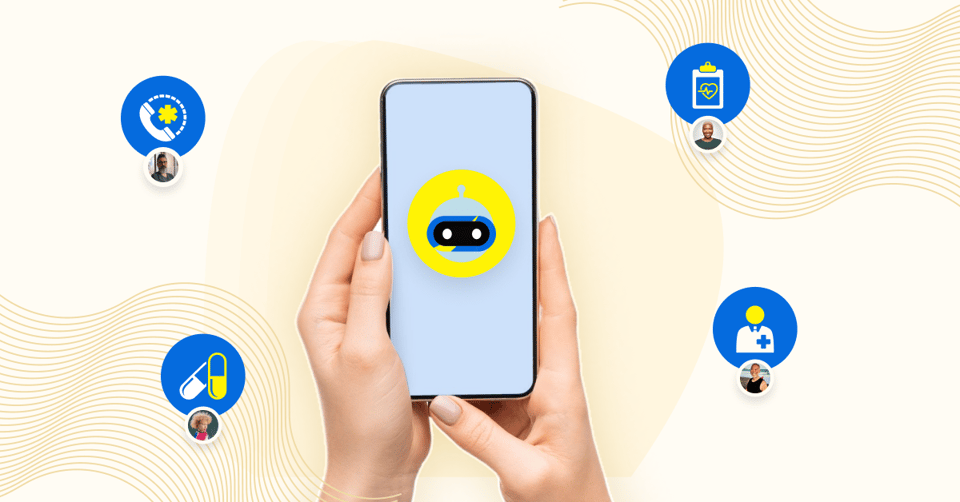

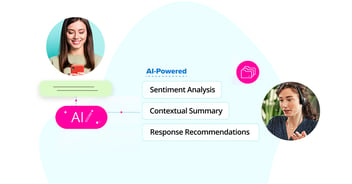
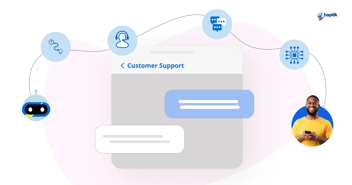
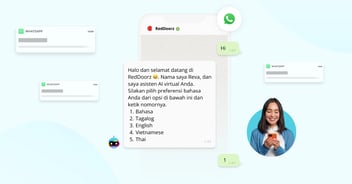
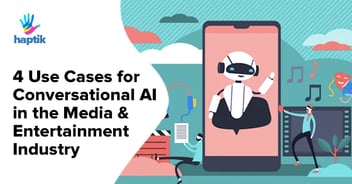
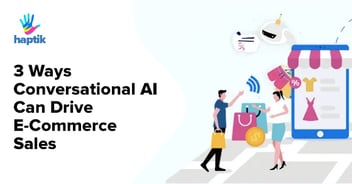
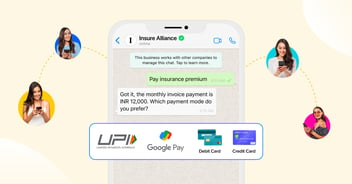
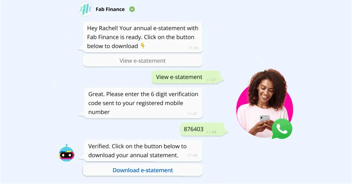
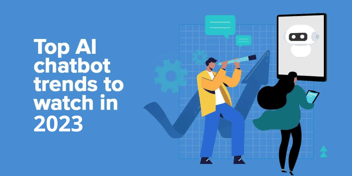

.jpg?quality=low&width=352&name=blog-banner-2%20(1).jpg)



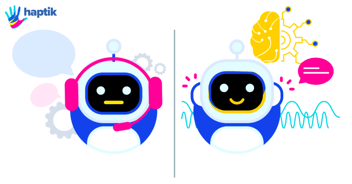



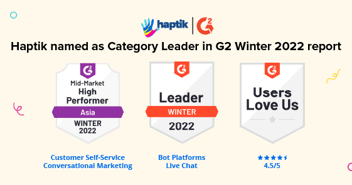

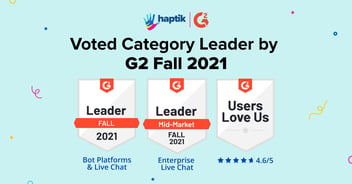

.png?width=352&name=image%20(18).png)
-2.png?quality=low&width=352&name=image%20(11)-2.png)




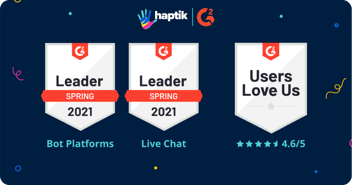
-1.jpg?width=352&name=Linkedin+%20Twitter%20(1)-1.jpg)



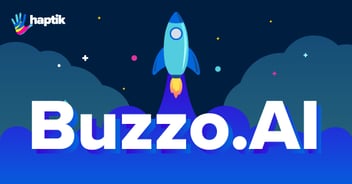
-1.png?width=352&name=LinkedIn%20(1)-1.png)
.png?quality=low&width=352&name=LinkedIn%20(3).png)

